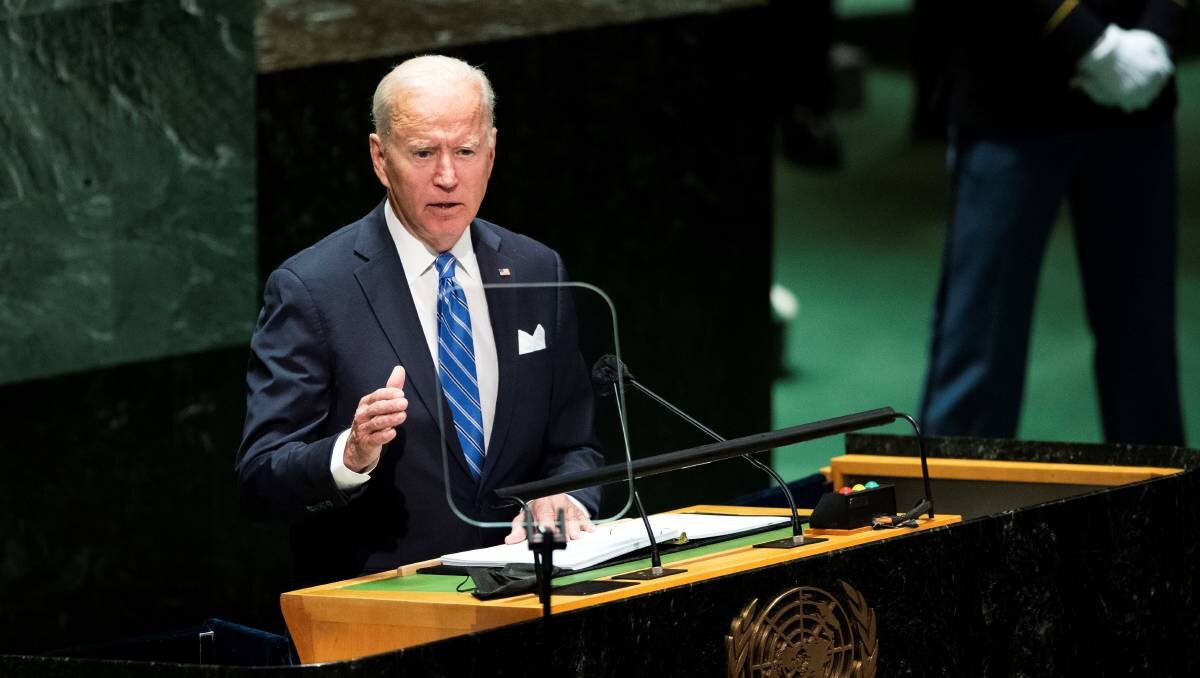Biden Preaches Diplomacy in First U.N. Speech
President Biden gave his first address to the UN as president on Sept. 21. "Joe Biden" by Gage Skidmore is licensed under CC BY-SA 2.0)
On September 21, President Biden gave his first speech as President to the United Nations, where he outlined his vision for what his administration hopes to accomplish in the coming years.
"I stand here today for the first time in 20 years with the United States not at war. We've turned the page," Biden said.
Biden emphasized peace and diplomacy throughout the speech, framing the nation’s withdrawal from Afghanistan earlier that month as ending “a period of relentless war” and ushering in "a new era of relentless diplomacy."
Addressing the delegates, Biden made it evident that he would be deviating in foreign policy from his predecessor. He noted how the U.S already has, or will soon be, rejoining many of the international alliances, agreements and organizations—like the World Health Organization, the Paris Climate Accord, the European Union and the Iran Nuclear Deal— with which the Trump administration cut ties.
Biden also went into great detail discussing the climate crisis, its importance, and what his administration plans to do about it. He laid out his ambitious plans for addressing climate change by stating that “to reduce greenhouse gas emissions from the United States by 50 to 52 percent below 2005 levels by 2030, as we work toward achieving a clean-energy economy with net-zero emissions by 2050.”
Biden then talked about the positives that these investments would bring, like good paying jobs around the world, unprecedented economic growth and widespread environmental progress. He framed climate change as a “borderless” problem while calling on all present nations to be ambitious in addressing the growing crisis.
Much of the address was spent acknowledging the coronavirus pandemic and international vaccination efforts.
“The United States has put more than $15 billion toward the global COVID response. We’ve shipped more than 160 million doses of COVID-19 vaccine to other countries. This includes 130 million doses from our own supply and the first tranche of the half a billion doses of Pfizer vaccine we purchased to donate through COVAX,” Biden said.
Biden’s speech represented a departure from the “America first” rhetoric of the Trump administration in dealing with international issues. Biden said the U.S. "will lead on all of the greatest challenges of our time, from COVID to climate, peace and security, human dignity and human rights, but we will not go it alone."
He made the point that using military power should always be the last resort, never the first, while emphasizing the importance of diplomatic and scientific skills over military might.
"US military power must be our tool of last resort, not our first and should not be used as an answer to every problem we see around the world," Biden said. "Indeed, today many of our greatest concerns cannot be solved or even addressed through the force of arms. Bombs and bullets cannot defend against Covid-19 or its future variants.”
Without naming China, Biden also discussed how the U.S. does not want a new Cold War but will be maintaining a competitive relationship with the world’s autocracies.
“The United States will compete, and compete vigorously, and lead with our values and our strength,” Biden said.
